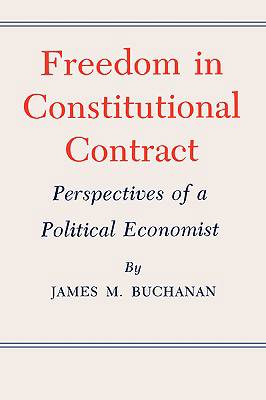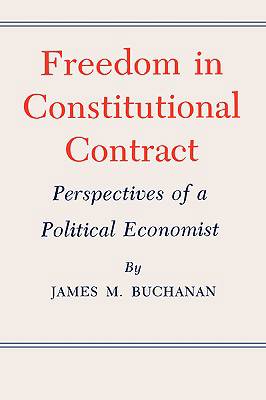
Je cadeautjes zeker op tijd in huis hebben voor de feestdagen? Kom langs in onze winkels en vind het perfecte geschenk!
- Afhalen na 1 uur in een winkel met voorraad
- Gratis thuislevering in België vanaf € 30
- Ruim aanbod met 7 miljoen producten
Je cadeautjes zeker op tijd in huis hebben voor de feestdagen? Kom langs in onze winkels en vind het perfecte geschenk!
- Afhalen na 1 uur in een winkel met voorraad
- Gratis thuislevering in België vanaf € 30
- Ruim aanbod met 7 miljoen producten
Zoeken
€ 36,45
+ 72 punten
Omschrijving
Though written by an economist, this book's subject is not "economics" in the ordinary sense of that term. Instead, it is James Buchanan's contribution to what he has called the "contractarian revival," the renewed interest in and emphasis on the metaphor of the social contract in evaluating political alternatives. He believes that genuine constitutional dialogue must take place in this country if America is to remain a free society and that the perspectives of an economist are valuable in the discussion of basic issues of social philosophy. The author critically examines the basic alternatives for social order: anarchy, natural law, historical determinism, and revealed reason. He rejects each of these and opts instead for "freedom in constitutional contract." In this stance he is explicitly constructivist, holding the view that reform in constitutional-legal rules or institutions is possible. Reform or improvement in such rules is determined, however, by conceptual contractual agreement or consensus and not by external ethical norms. Further, the choice among alternative sets of rules, alternative "constitutions," is categorically distinguished from attempts to suggest policy norms within an existing set of rules. In developing his analysis, Buchanan critically analyzes recent contributions by John Rawls, Robert Nozick, F. A. Hayek, Michael Polanyi, Frank H. Knight, and other social philosophers
Specificaties
Betrokkenen
- Auteur(s):
- Uitgeverij:
Inhoud
- Aantal bladzijden:
- 324
- Taal:
- Engels
- Reeks:
- Reeksnummer:
- nr. 2
Eigenschappen
- Productcode (EAN):
- 9781585440009
- Verschijningsdatum:
- 1/12/1977
- Uitvoering:
- Paperback
- Formaat:
- Trade paperback (VS)
- Afmetingen:
- 154 mm x 230 mm
- Gewicht:
- 530 g

Alleen bij Standaard Boekhandel
+ 72 punten op je klantenkaart van Standaard Boekhandel
Beoordelingen
We publiceren alleen reviews die voldoen aan de voorwaarden voor reviews. Bekijk onze voorwaarden voor reviews.









